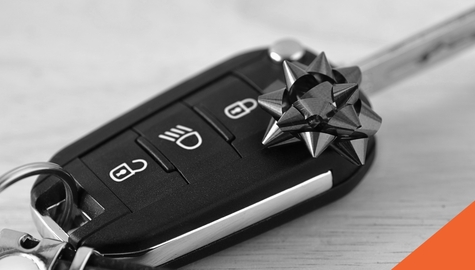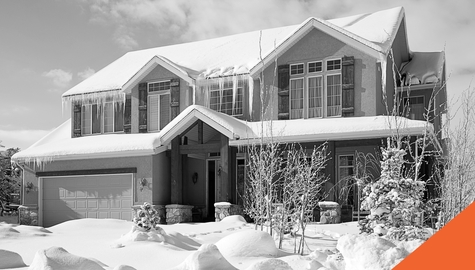The Complete Guide to Securing a Bad Credit Mortgage
Tuesday, 12 March 2024
Buying a home can be a complex process, and navigating the world of mortgages can be daunting, especially if you have bad credit. Fortunately, a bad credit mortgage is a viable option if you find yourself in this situation. This financial solution is designed for those who may not meet the standard requirements for a traditional mortgage due to a less-than-perfect credit score.
There are several options that can provide hope to Canadians looking to buy a house with bad credit. In this blog post, we will explore how bad credit mortgages work, highlighting what constitutes bad credit, how you can improve your credit score, and the various avenues available for obtaining a mortgage with bad credit. Keep reading to learn more!
What is a Credit Score?
A credit score is a numerical representation of your creditworthiness, and it plays a significant role in mortgage approval. In Canada, credit scores are determined by factors such as payment history, credit utilization ratio, length of credit history, types of credit, and new credit inquiries. Lenders use this score to assess the risk of lending to you, with higher scores indicating lower risk.
The higher your credit score, the better your chances of getting approved for a mortgage with favourable terms, such as lower interest rates and higher borrowing limits. It's essential to understand your credit score and take steps to improve it if needed, as it can greatly impact your ability to achieve your homeownership goals.
Can I Get a Mortgage with Bad Credit?
The short answer is yes, you can get a mortgage when you have bad credit. However, it's important to understand the challenges you may face. Lenders are naturally more cautious when it comes to borrowers with bad credit, as they pose a higher risk. This means that securing a mortgage with bad credit may come with higher interest rates and stricter terms.
Despite these challenges, there are options to explore for those with bad credit who dream of owning a home one day. With determination and careful financial planning, it's possible to navigate these obstacles and find a path to owning a home. It may require some extra effort, such as improving your credit score or exploring alternative mortgage options, but the goal of homeownership is definitely attainable.
What is Considered Bad Credit?
In Canada, credit scores range from 300 to 900, with anything below 600 generally considered as bad credit. This can be due to a history of late payments, high debt levels, multiple hard inquiries, and other factors. To determine if you have bad credit, you can check your credit score through various platforms.
Many financial institutions and online services offer free access to your credit score, making it easy to stay informed about your financial health. Checking your credit score regularly is crucial, as it gives you an idea of where you stand and allows you to take steps to improve it. By staying proactive, you can work towards better financial stability and access to loans with better terms.
How to Check Your Credit Score
Checking your credit score is a simple process that can be done online through various credit bureaus or financial institutions. There are resources that provide easy-to-follow steps for checking your credit score. Additionally, many banks and credit card companies offer free access to your credit score as part of their services. By regularly monitoring your credit score, you can identify any errors or discrepancies that may be negatively impacting your score. This proactive approach allows you to address issues promptly and work towards improving your credit health for future financial endeavours.
Seven Bad Credit Mortgage Options
When it comes to bad credit mortgages in Canada, there are several options that you can consider. Let's explore some of them further:
Alternative or Private Lenders
Alternative or private lenders are non-traditional financial institutions that cater to individuals with bad credit. These lenders often have less stringent requirements than traditional banks, making it easier for those with bad credit to secure a mortgage. However, interest rates may be higher, and terms may be less favourable. It's important to carefully consider the terms offered by these lenders and compare them with other options.
While they can be a good solution for those struggling to obtain a mortgage through traditional means, borrowers should be aware of the potential long-term costs associated with higher interest rates. Working with a mortgage broker who specializes in these types of lenders can also be beneficial, as they can help navigate the options and find the best fit for your financial situation. We’ll discuss this option in the next section.
Mortgage Brokers
Mortgage brokers act as intermediaries between borrowers and lenders, helping you find a suitable mortgage. They have access to a network of lenders, including those who specialize in bad credit mortgages. If you have bad credit, a mortgage broker can guide you through the process and help you find the best possible terms.
Additionally, brokers can offer valuable advice on improving your credit score and financial profile to increase your chances of mortgage approval. They handle the paperwork and negotiations, saving you time and potentially helping you secure a better deal. Working with a mortgage broker can be especially beneficial for those with bad credit, as they can tap into their expertise and connections to find options that align with your needs and financial goals.
Mortgage with a Co-Signer
A co-signer with good credit can significantly improve your chances of getting approved for a mortgage. A co-signer is someone who agrees to take on responsibility for the loan if you default. This provides added security for the lender, making them more willing to approve your mortgage application.
Having a co-signer with good credit not only increases your chances of approval but can also lead to better terms, such as lower interest rates and higher loan amounts. It's important to choose a co-signer who understands the responsibilities involved and has the financial capacity to support the loan if needed. Keep in mind that both you and the co-signer's credit will be impacted by the mortgage, so it's crucial to maintain timely payments to protect both credit scores.
Government Programs
In Canada, there are government-backed programs designed to help individuals with bad credit obtain a mortgage. Programs such as the Home Buyers' Plan (HBP) and First Home Savings Account (FHSA) offer financial assistance and support for first-time homebuyers.
The HBP allows eligible individuals to withdraw up to $35,000 from their Registered Retirement Savings Plan (RRSP) to use towards a down payment, providing a significant boost for those with limited savings. It is important to note that you have 15 years to repay the funds to your RRSP. These payments must begin two years after you withdraw the funds from your RRSP to avoid any tax implications.
The FHSA provides a tax-efficient way for first-time homebuyers to save for their home purchase, encouraging responsible homeownership and reducing the financial burden of buying a home. This account combines elements from both an RRSP and a TFSA, allowing tax-free contributions up to a specified limit. Withdrawals made from the account are also tax-free.
These programs can be valuable resources for individuals with bad credit looking to achieve their homeownership goals.
Credit Repair
Improving your credit score is essential for getting a mortgage with better terms. This involves paying off debts, making timely payments, and reducing credit utilization. There are also credit repair services available that can help you identify and address issues on your credit report. Taking these steps not only improves your chances of mortgage approval but can also save you money in the long run by securing lower interest rates.
Subprime Mortgages
Subprime mortgages are designed for borrowers with poor credit scores. While interest rates may be higher, these mortgages provide an opportunity for homeownership for those who may not qualify for traditional loans. It's important to carefully consider the terms and potential risks associated with subprime mortgages, such as prepayment penalties and adjustable interest rates. Working with a financial advisor or mortgage broker can help you navigate the complexities of subprime mortgages and determine if it's the right option for your situation.
Rent-to-Own Programs
Rent-to-own programs allow you to rent a home with the option to purchase it at a later date. This can be a useful option for those with bad credit who are working towards improving their credit score. These programs typically involve a portion of your rent going towards a down payment, helping you build equity over time while giving you the flexibility to transition into homeownership when you're ready. It's essential to thoroughly review the terms of the agreement and ensure that you have a clear understanding of the responsibilities and potential benefits before entering into a rent-to-own program.
How to Get a Mortgage with Bad Credit
Now that we've explored the various options let's discuss some tips for improving your chances of getting a mortgage with bad credit:
Save for a Down Payment
Saving for a larger down payment can offset the impact of bad credit. Lenders may be more willing to approve your mortgage application if you can provide a substantial down payment.
Check Your Credit Report for Errors
Review your credit report regularly for errors or inaccuracies that may be dragging down your score. If any errors are found, dispute them with the credit bureau to have them corrected.
Find a Co-Signer
As mentioned earlier, having a co-signer with good credit can greatly improve your chances of getting approved for a mortgage. Choose someone who is willing and able to take on this responsibility. Common examples of co-signers include a family member or a close friend.
Pay Down Debt
Reducing your overall debt load can improve your credit score and make you a more attractive borrower. Focus on paying off high-interest debts first to free up more funds for savings and improving your credit utilization ratio.
Increase Your Available Credit
As you improve your credit score, you may be able to increase your available credit, which can improve your credit utilization ratio. Consider applying for a secured credit card or asking for a credit limit increase on existing cards.
Improve Your Financial Situation
In addition to focusing on your credit score, improving your overall financial situation can also boost your chances of getting approved for a mortgage. This includes a stable employment history, a healthy income-to-debt ratio, and a solid savings account.
Get a Home Insurance Quote with BIG
So, can you get a mortgage with bad credit? While getting a bad credit mortgage in Canada may seem challenging, it’s certainly possible. By taking the time to understand your bad credit mortgage options and how you can improve your credit score, owning your dream home can become a reality. As you work towards securing a mortgage with bad credit, it's also important to consider protecting your investment with home insurance.
When the time comes to buy a home, a BIG broker can help you find affordable coverage. With their range of options and personalized service, BIG makes it easy to get the protection you need for your new investment. For more information, contact your nearest BIG branch or request a quote so you can start planning for a secure future.



